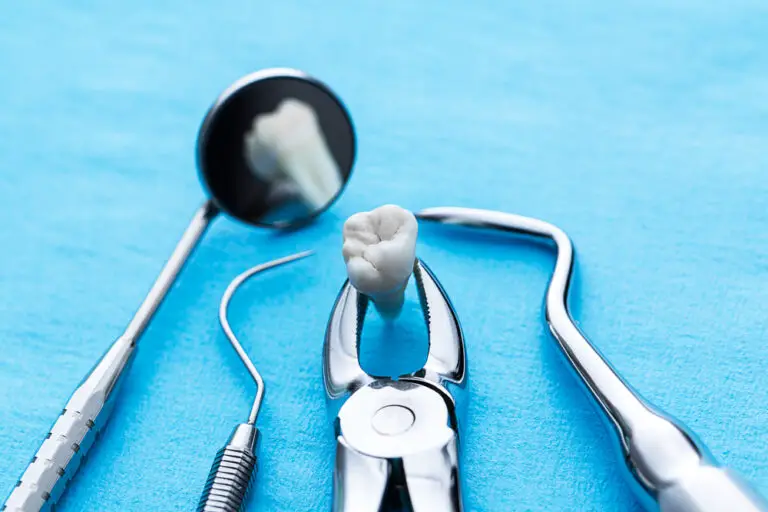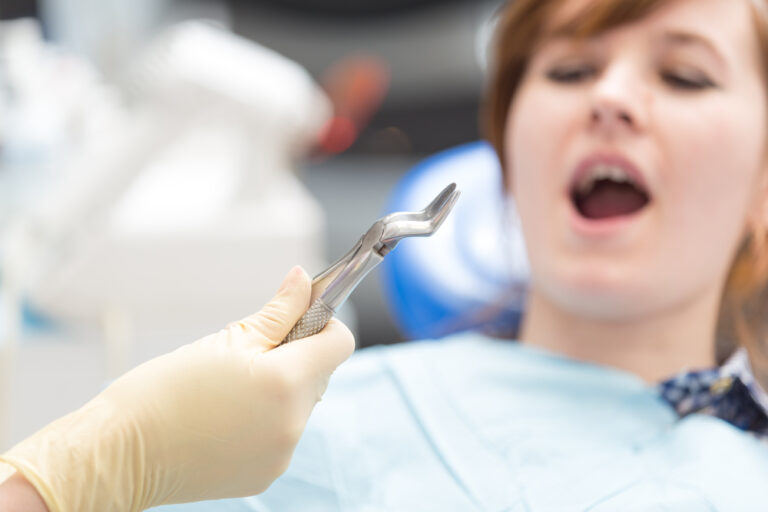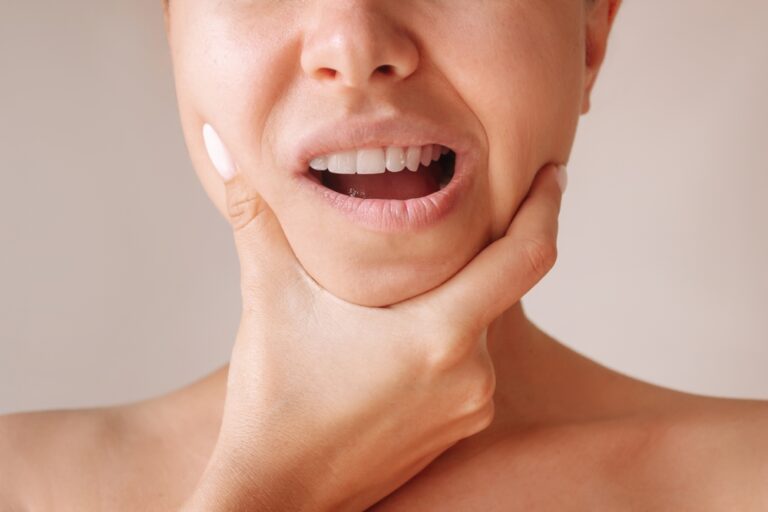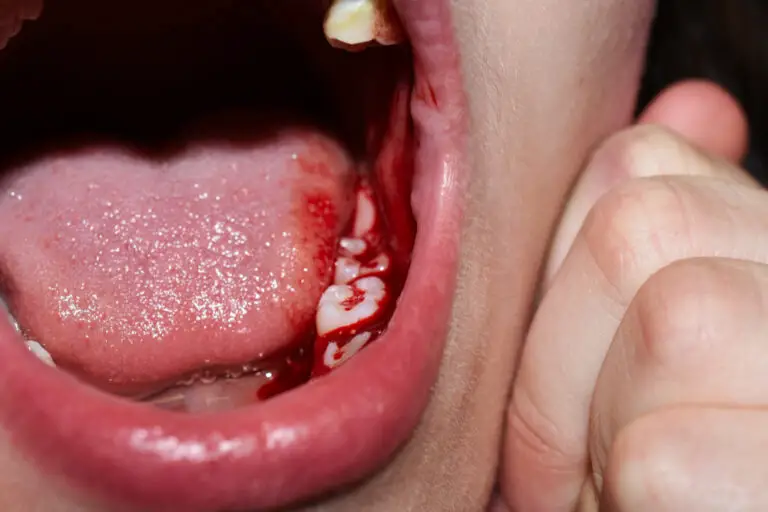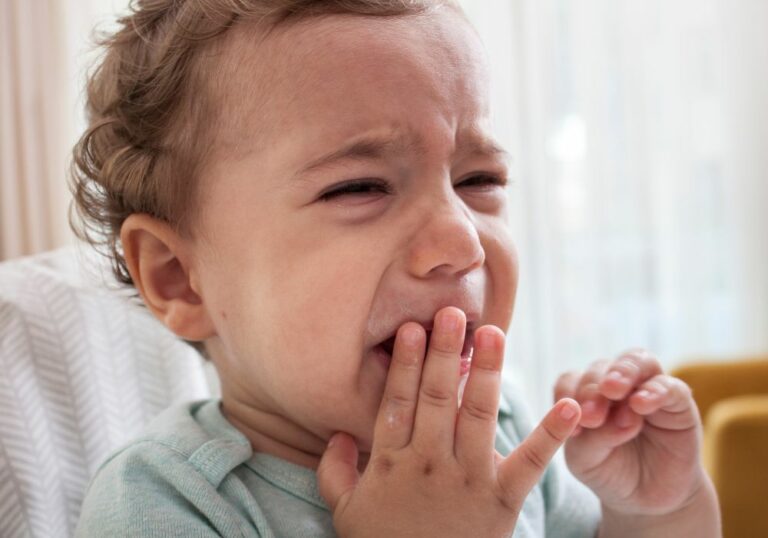Having a bright, healthy smile is important both for appearance and overall wellbeing. But dental care can be prohibitively expensive. This leads many in the UK to wonder – can I get my teeth cleaned on the NHS?
Unfortunately, routine dental cleanings are not provided as part of standard NHS dental coverage. However, those seeking to maintain dental health on a budget do have options. This comprehensive guide will examine NHS dental entitlements, costs of private cleanings, discounted dental services, professional cleaning procedures, and frequently asked questions.
What Dental Services Are Included on the NHS?
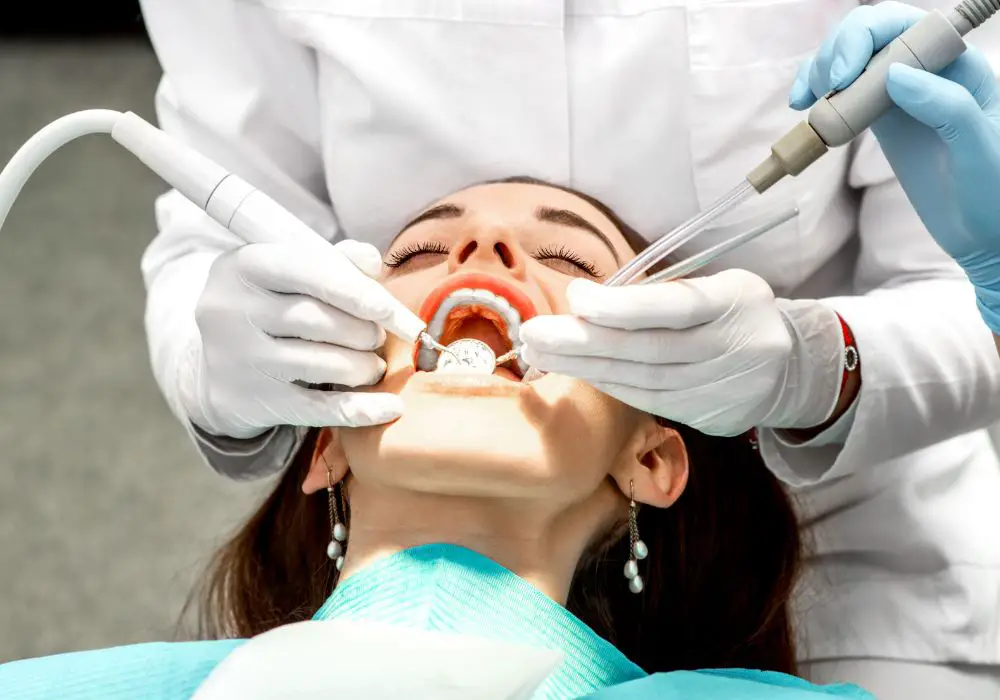
The National Health Service aims to ensure all citizens have access to essential healthcare. For dental patients, NHS care focuses on:
- Emergency Treatment – This includes procedures like extractions, fillings, and prescriptions when needed for relief of dental pain or infection.
- Routine Oral Examinations – These checkup appointments are meant to assess overall dental health. Exams are provided every 24 months for most adults. More frequent exams may be approved for high risk patients.
- X-Rays – Small intraoral radiographs needed to diagnose dental conditions are covered. This typically includes bite-wing images to detect interproximal decay.
- Fillings – Both amalgam and tooth-colored composite fillings to restore teeth with cavities or fracture damage.
- Tooth Extractions – Removal of teeth that are severely decayed, abscessed, impacted, or too damaged to be saved through restorative treatment.
- Root Canals – Endodontic therapy is used to save infected teeth by removing diseased pulp tissue and sealing the inner canals.
- Crowns – Full coverage caps placed on teeth when damage is too extensive for fillings alone. Crowns reinforce, protect, and prevent fracturing of vulnerable teeth.
- Dentures – Removable false teeth which replace missing natural teeth. Both full and partial dentures may be provided.
- Specialist Referrals – For complex procedures like dental implants, orthodontics, or oral surgery, patients may be referred to specialists not typically available under NHS.
Conspicuously absent from the standard NHS dental coverage is preventive teeth cleaning. The service focuses resources on treating existing oral disease and trauma, rather than prevention. Patients must pay out of pocket for routine professional cleanings.
Why Are Teeth Cleanings Excluded from NHS Care?
The NHS does not cover dental prophylaxis for a combination of reasons:
- Cost Constraints – With funding limitations, available monies are reserved for emergency and essential care over preventive services. Cleanings fall lower on the priority list.
- Staffing Shortages – More frequent tooth cleanings for all NHS dental patients would require additional appointments and staff time. The NHS struggles to fully staff even basic care currently.
- Insufficient Appointment Time – Most NHS dental appointments are brief, focused only on the presenting concern. This allows higher patient throughput. Lengthier preventive visits are restricted.
- Population Health Approach – For the greatest oral health impact across the whole population, resources are better spent on public health efforts like fluoride varnish programs for children.
- Supplemental Private Care – Since prophylactic cleanings are widely available affordably from private dentists, the NHS may view this as supplementation rather than a coverage gap.
- Patient Responsibility – There may also be an attitude that patients share responsibility for prevention through personal oral hygiene habits. Professional cleanings are therefore less essential.
While these reasons are understandable, the NHS exclusion of dental prophylaxis remains controversial and concerning from a public health perspective. Patients are reliant on paying out-of-pocket or utilizing supplementary assistance programs.
How Much Do Private Dental Cleanings Cost?
For patients looking outside the NHS, private dental hygienist fees for a scale and polish average:
- £50-£65 in England
- £45-£55 in Scotland
- £45-£60 in Wales
- £40-£55 in Northern Ireland
When performed by a dentist, and for more involved “deep cleaning” including subgingival scaling and root planing, costs range:
- £80-£150 in England
- £65-£120 in Scotland
- £70-£140 in Wales
- £60-£100 in Northern Ireland
London, with its higher costs of living and doing business, sees charges at the top of these ranges. More remote rural areas tend toward the lower figures.
For patients visiting the practice routinely each year, some dental offices may offer a discount on additional hygiene appointments beyond the standard NHS care. This reflects the better per-patient revenue from private pay services.
Options for Affordable Dental Cleanings
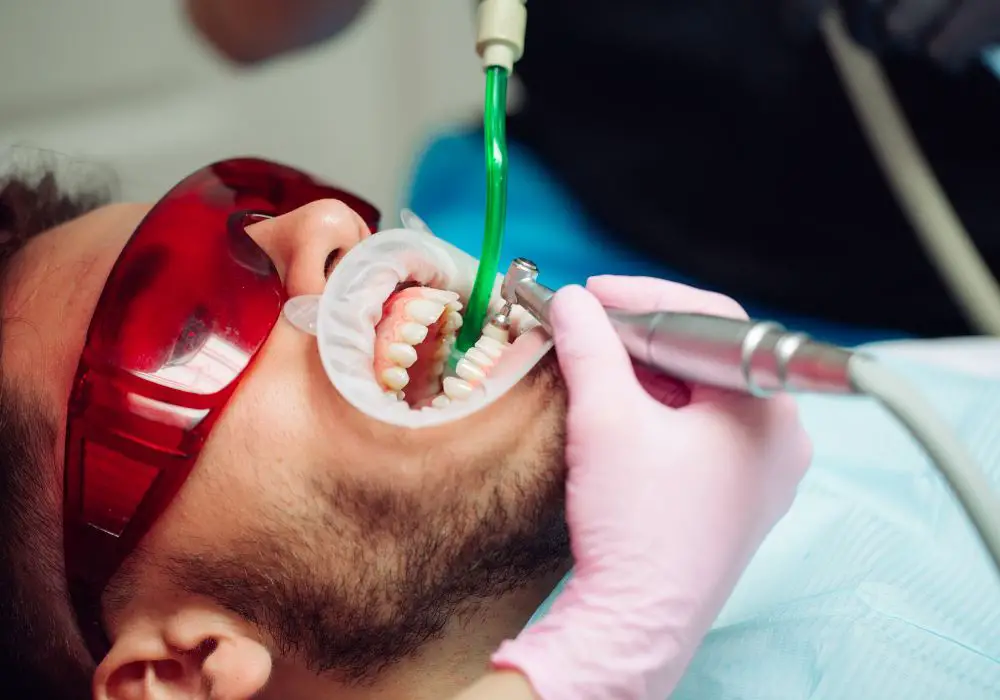
While NHS does not provide funding for preventive dental cleanings, several options exist for obtaining low cost teeth cleaning:
- Dental Schools – Dental students and residents need real patients to gain clinical experience. Dental hospitals and universities provide care at discounted rates, often 20-50% less than standard private fees.
- Hygiene Student Clinics – Dental hygienists in training also require practice to develop skills. Visiting a dental hygiene school clinic can reduce costs by up to 50%.
- NHS Low Income Support – Patients on limited incomes may qualify for help with dental costs, including discounted cleanings, through the NHS Low Income Scheme.
- Dental Insurance – Many private dental insurance plans include regular preventive care like prophylaxis. Monthly premiums are generally affordable compared to out-of-pocket costs.
- Dental Discount Plans – These programs provide access to a network of dentists offering reduced rates to members. Fees are commonly £15-£30 yearly.
Using one of these cost-saving options is recommended for patients who want to maintain oral health between NHS checkups but have limited budgets.
Professional Cleaning Frequency Recommendations
| Organization | Children | Adults | High Risk Patients |
|---|---|---|---|
| British Dental Association | Every 6 months | Every 6 months | Every 3-4 months |
| American Dental Association | Every 6 months | Every 6 months | Every 3-4 months |
| NHS | Not specified | Not specified | Not specified |
Table comparing suggested intervals for professional dental cleanings
Professional cleanings every 6 months are widely advised for maintaining good oral hygiene and preventing disease. The NHS offers no formal recommendation, as cleanings are considered outside standard coverage.
More frequent cleanings every 3-4 months may provide added benefit for patients at increased risk for tooth decay, gum disease, or other dental issues. This includes:
- Heavy plaque or calculus buildup
- Gingivitis or periodontitis
- Dry mouth
- Poor diet or heavy sugar consumption
- Orthodontic appliances
- Dental implants or crowns
- Systemic conditions like diabetes or immunodeficiency
Pregnant women are also encouraged to have a thorough cleaning in each trimester due to increased gingival inflammation.
What to Expect During a Professional Teeth Cleaning Appointment
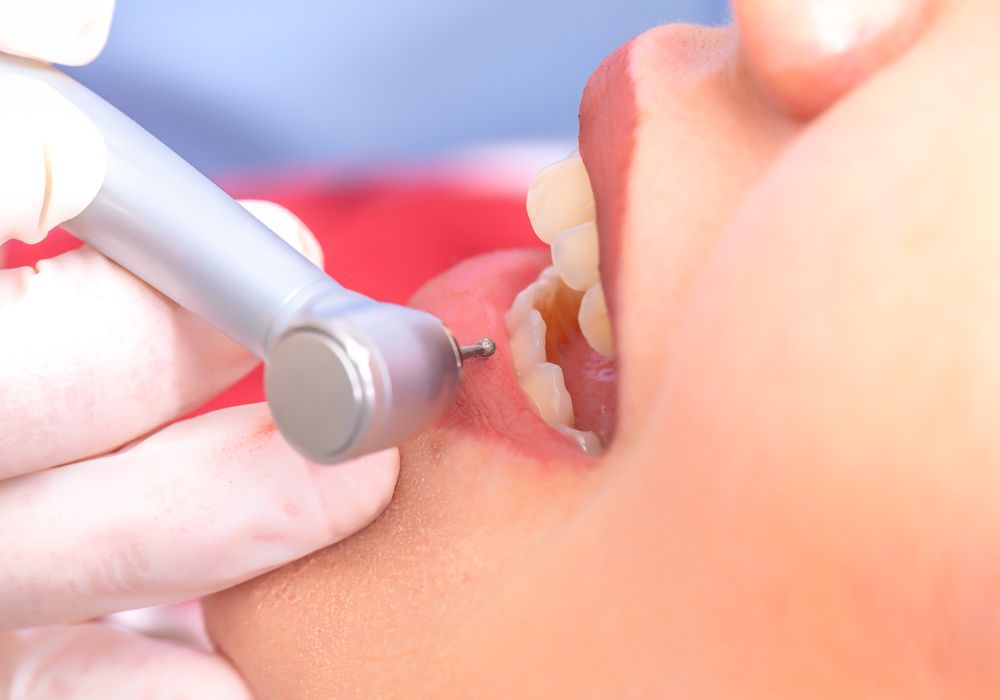
A standard prophylaxis or scale and polish appointment generally involves:
- Health History Review – The hygienist or dentist will start by inquiring about any changes to medical conditions, medications, or allergies since the last visit. This ensures it remains safe to perform the cleaning.
- Oral Cancer Screening – Soft tissues of the mouth, throat, tongue, lips, and neck are examined visually and by palpation for any concerning growths or lesions. Early detection improves outcomes.
- Periodontal Evaluation – Gum health is assessed by observing color, contour, bleeding tendency, and pocket depths around each tooth, as well as overall plaque and calculus buildup.
- Supragingival Scaling – Instruments are used to manually scrape off any soft plaque and tartar above and at the gumline on tooth surfaces. This is where unsightly stains also reside.
- Subgingival Scaling and Root Planing – For deep cleanings, hand tools or ultrasonic devices remove hardened calculus below the gumline and debride infected cementum. Local anesthetic is often used.
- Tooth Polishing – A rubber cup with polishing paste is used to buff teeth for a brighter, stain-free appearance.
- Fluoride Treatment – A fluoride varnish or gel is applied to help protect vulnerable tooth surfaces and remineralize early decay.
- Oral Hygiene Instruction – Patients receive guidance on proper brushing and interdental cleaning techniques for maintaining results between office visits.
Cleanings are generally quick and comfortable, but can cause some temporary sensitivity. Inform your hygienist if you experience discomfort. Improper technique can lead to accidental damage like gingival recession or loss of restorations. Always see a qualified professional for best results and safety.
Frequently Asked NHS Dental Cleaning Questions
Can I get a scale and polish on the NHS?
No. The NHS does not cover routine preventive dental cleanings. Only emergency treatment and basic care like exams, x-rays, and extractions are included. You must pay out of pocket or use supplementary assistance programs for teeth cleanings.
How can I get discounted dental cleanings in the UK?
Options for more affordable cleanings include visiting dental schools and hygiene student clinics, enrolling in insurance or discount plans with preventive benefits, or qualifying for the NHS Low Income Scheme if eligible based on limited income.
When should I get a professional cleaning?
The standard recommendation is a dental prophylaxis every 6 months for adults to remove plaque buildup. Some patients with higher risk may need more frequent 3-4 month cleanings. Ask your dentist or hygienist to evaluate your needs.
Does a dental hygienist cleaning hurt?
You may feel some minor discomfort from the scraping and vibration, especially if there is heavy tartar accumulation or gum inflammation. But cleanings should never be severely painful. Speak up if your hygienist is being too aggressive.
What is the difference between a scale and polish and a deep cleaning?
A basic scale removes surface plaque and stains. Deep cleanings involve scaling below the gumline, often under local anesthetic. Deep cleanings treat more extensive calculus deposits, diseased pockets, and bone loss in periodontitis.
Conclusion
While routine dental prophylaxis is not included in NHS coverage, resources exist for obtaining professional teeth cleanings at reduced cost through dental schools, hygiene clinics, insurance, discount plans, and income-based assistance. Biannual cleanings help maintain oral health between NHS exams. Be sure to ask your dentist or hygienist for individualized recommendations on optimal cleaning frequency. Consistent prevention helps avoid costly dental problems and keep your smile looking its best.

